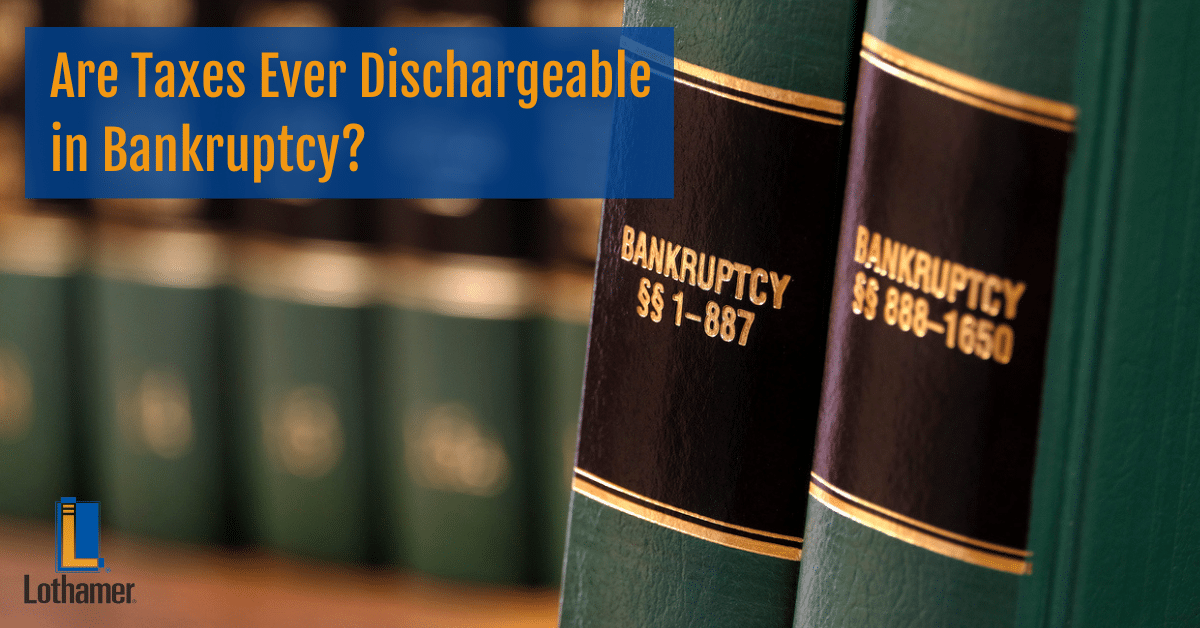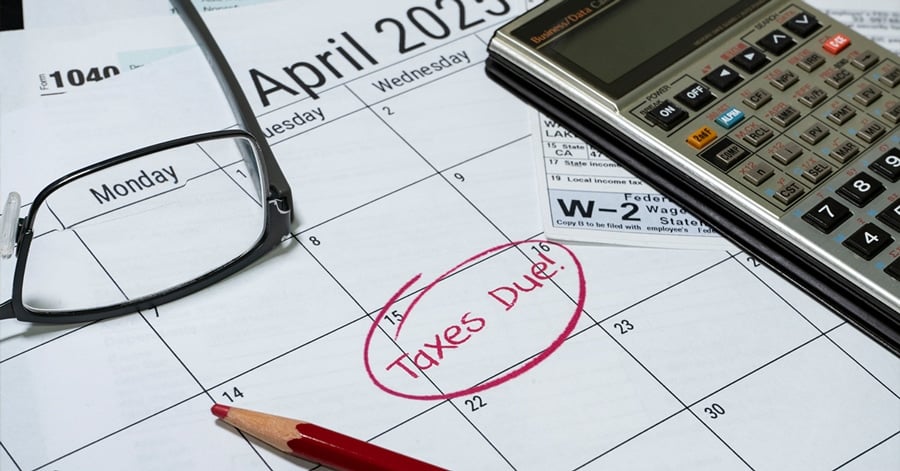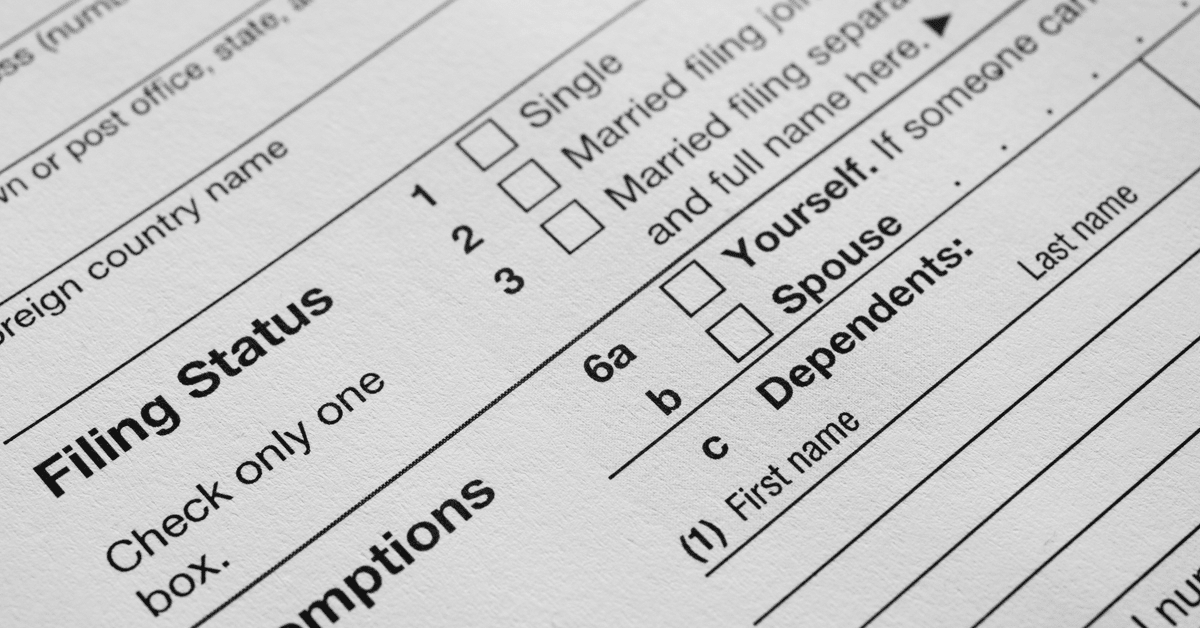
It’s a common misconception that bankruptcy is a way to completely wipe the slate clean when it comes to overwhelming debt. While it can be an important lifeline for many Americans, it comes with its fair share of trade-offs. And in the case of tax debt, you may find yourself still holding the bag for sizable obligations even after the bankruptcy case has been settled.
If you’re seeking a way to find relief from overwhelming tax debt, there is a small chance that bankruptcy can help, though it depends on many factors and eligibility requirements. Let’s take a look at the circumstances under which taxes can be discharged, and what options are available to people considering bankruptcy to deal with tax debt.
Your Guide to Tax Discharge in Bankruptcy: What to Know
Are taxes ever dischargeable in bankruptcy? The answer is: yes, but it’s rare.
In general, you shouldn’t count on bankruptcy to settle or eliminate tax debt. However, there are situations when it’s possible. Your eligibility will depend on many factors, including the type of bankruptcy you are filing—Chapter 7 or Chapter 13.
To get personalized recommendations for your situation, we always recommend speaking to a licensed tax professional, who can analyze your case and develop a strategic plan optimized for you. Text or call (877) 955-9020 to get tax help today!
When You Can Discharge Tax Debt in Chapter 7 Bankruptcy
Chapter 7 bankruptcy, also known as liquidation bankruptcy, can be an attractive option to those who can’t pay their overall debts because it doesn’t require debt repayment. That said, it may not be the best option for those who owe significant back tax debt.
That’s because, while it is possible to have some tax debts discharged through Chapter 7, your situation has to meet all of the following criteria to qualify:
The taxes are income-based
You cannot eliminate any taxes other than income tax. That means if you have payroll tax debt, fraud penalties, or tax liens, they will remain.
You haven’t tried to avoid paying
If your tax return is found to be fraudulent, or you attempted to hide the debt or evade payment with unlawful actions, bankruptcy won’t be able to help.
The debt is a minimum of 3 years old
For example, if you’re filing for bankruptcy in 2024, the debt would have to come from your 2021 tax return or earlier.
You’re up to date on your tax returns
You must have filed your tax return at least two years before filing bankruptcy. Using the example above, you would have to have filed your 2021 tax return by April 2022.
If you have unfiled tax returns, you are no longer eligible to eliminate your tax debt through bankruptcy. And with rare exceptions, if you filed late (after your extensions expired), that excludes you from discharge as well.
You meet the 240-Day Rule
The IRS has to have assessed your tax debt at least 240 days before you file your petition for bankruptcy.
What About Tax Liens?
If a tax lien was placed before you filed for Chapter 7 bankruptcy, it cannot be discharged through this process. Even if you were to meet all of these eligibility requirements and have your tax debt discharged, you would still need to pay off the lien before selling your property.
When You Can Discharge Tax Debt in Chapter 13 Bankruptcy
Chapter 13 bankruptcy involves reorganizing debt and repaying it over a 3-to-5-year time period. It’s sometimes called wage-earners bankruptcy because you must be earning a wage to petition for it. Though it is a longer process, it’s generally regarded as the smarter option for those dealing with tax debt.
In most cases, this method involves repaying tax debts through a payment plan instead of discharging them. However, you may be able to qualify for discharge if the debt is older than 3 years.
These older tax debts could be forgiven entirely, though whether or not they qualify for discharge is typically judged on a case-by-case basis. One major factor in the decision is how much disposable income you have left over after deducting all reasonable and necessary expenses.
Chapter 13 may be the better option for those with tax debt because:
- Any discharged tax debt won’t accrue additional interest or tax penalties
- As part of your repayment plan, IRS tax liens can be satisfied
- As long as you continue to meet your tax obligations and include all income in your repayment plan, the IRS must abide by that plan
What Taxes Are Not Dischargeable in Bankruptcy?
Generally speaking, any taxes that are not income taxes are non-dischargeable. That includes, but is not limited to:
- Payroll taxes and other employee taxes
- Recent property taxes
- Sales taxes
- FICA, Medicare, and other taxes withheld from employees
- Fraud penalties
- Tax liens (in Chapter 7 cases)
Bottom Line: Can Taxes Be Written Off in Bankruptcy?
Yes, in rare cases, though it may not always be the best option for dealing with large back tax debt and other significant tax problems like liens and asset seizures. Bankruptcy generally should not be viewed as a way to erase tax obligations; instead, it should be something you consider as a last resort.
However, if you find yourself in a situation where you can’t pay the taxes you owe, you have options! Even if bankruptcy isn’t the right choice for you, by working with a trusted tax resolution firm, you can find out what the right choice is.
No matter whether you have missing records, years of unfiled returns, or the IRS has threatened to take collection actions against you, the professionals at Lothamer Tax Resolution are ready to develop your personalized Roadmap to Resolution! Get started putting your tax problems behind you today with help from our experienced team.
The Midwest’s Trusted Tax Resolution Firm: Helping Resolve Tax Debt Issues in Michigan, Wisconsin, Illinois, Indiana, Ohio, & Kentucky
Tax problems won’t disappear on their own, but with the help of one of our Enrolled Agents, tax professionals, or CPAs, you can find a resolution that you can live with. Don’t be discouraged. Make today the day you get back on your feet and tackle your tax debt! Find an office of Lothamer Tax Resolution near you or call or text (877) 955-9020 to speak to a tax expert TODAY!
"*" indicates required fields




